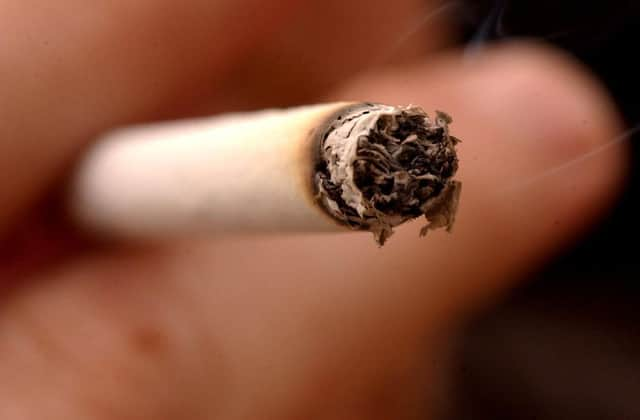Smoking ban reduces premature births and asthma


A team from Edinburgh University was the first to look at how anti-smoking laws in different countries and areas were affecting children’s health.
Smoking bans in public places in North America and Europe were found to reduce harm caused to the unborn and young children, as well as adults.
Advertisement
Hide AdAdvertisement
Hide AdAnd experts discovered pregnant women breathing in second-hand smoke can suffer stillbirths or premature pregnancies. Second-hand, or passive, smoke inhalation was also linked to birth defects, asthma and lung infections.
Children exposed to tobacco smoke also face long-term health problems, including chronic illness such as heart disease and diabetes in later life.
Less than one sixth of the global population is protected by anti-smoking laws, with 40 per cent of the world’s children regularly exposed to second-hand smoke.
The Scottish team found passive smoking claims an estimated 160,000 young lives each year and harms considerably more.
Lead researcher Dr Jasper Been, of Edinburgh University’s Centre for Population Health Sciences, said: “Our research shows smoking bans are an effective way to protect the health of our children.
“These findings should help to accelerate the introduction of anti-smoking legislation in areas not currently protected.”
The study looked at more than 2.5 million births and almost 250,000 hospital attendances for asthma attacks and was carried out with support from researchers at Maastricht University, Hasselt University, Harvard Medical School and Brigham and Women’s Hospital.
Research has shown children account for more than a quarter of all deaths and over half of all healthy years of life lost due to exposure to passive smoking. The study looked at 38 years of research on the impact of public smoking restrictions on health outcomes in children aged 12 r younger.
Advertisement
Hide AdAdvertisement
Hide AdIn included five North American studies describing local bans and six European studies looking at national bans.
The team said the research found significant reductions in pre-term birth and severe asthma attacks in childhood, as well as a 5 per cent decline in children being born very small for their gestational age after the introduction of smoke-free laws.
The study, published in medical journal the Lancet, concluded: “The rapid economic benefits that smoke-free laws and other tobacco-control policies bring in terms of reduced medical costs are real.
“Rarely can such a simple intervention improve health and reduce medical costs so swiftly and substantially.”
US scientists Sara Kalkhoran and Stanton Glantz, from the University of California, said the cost of treating asthma exceeded £30.18 billion in the US and £12.07bn in Europe.
If hospital admissions were reduced by just a tenth, both the US and Europe would be a total of £4.23bn better off, she said.